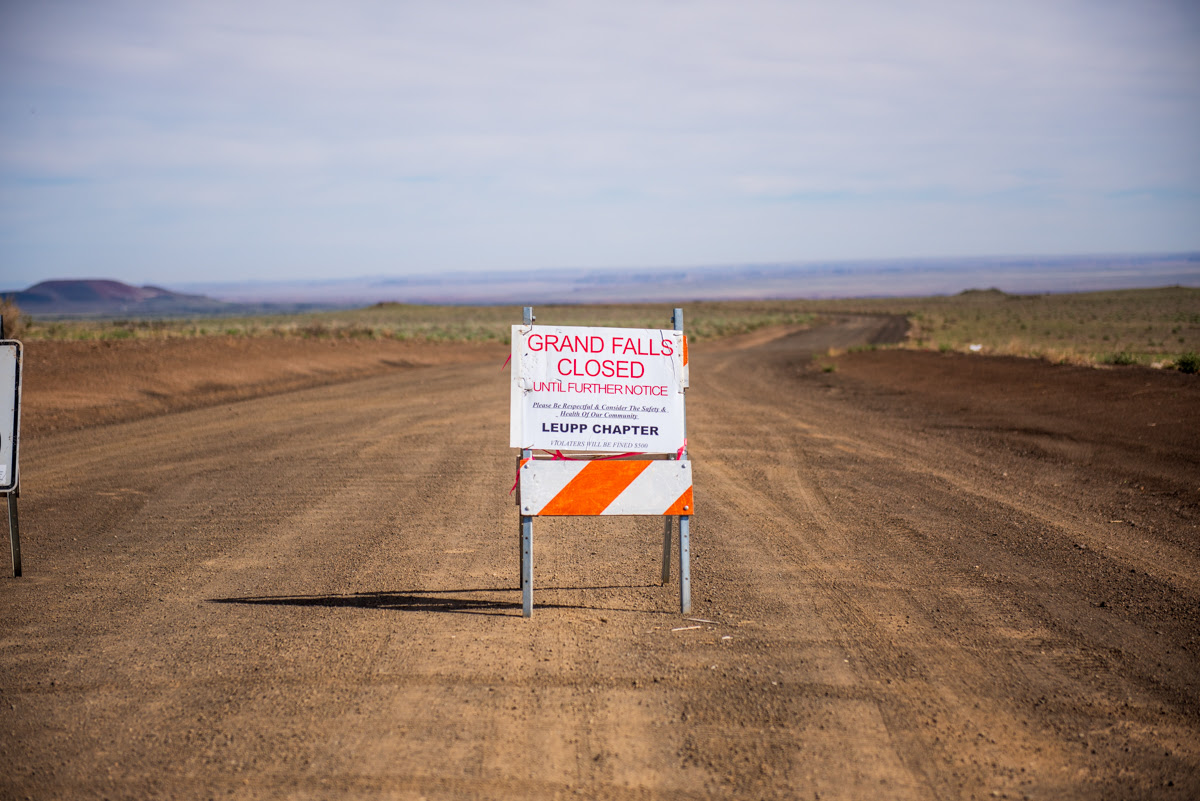
- Details
- By Levi Rickert
WINDOW ROCK, Ariz. — On Tuesday, the Navajo Department of Health, in coordination with the Navajo Epidemiology Center and the Navajo Area Indian Health Service, reported zero COVID-19 positive cases for the Navajo Nation for the first time since March 17 when the Navajo Nation first reported its first cases.
While no cases were reported on Tuesday, which is welcome news, Navajo Nation leaders are not proclaiming “mission accomplished.” Navajo Nation leaders maintain Navajo citizens must remain cautious because there is no vaccine available to the public yet.
"No new cases reported today is good news, but the reality is that our daily numbers will continue to fluctuate as long as there is no vaccine available,” Navajo Nation President Jonathan Nez.
“This is a milestone for the Navajo Nation,” Navajo Nation Council Speaker Seth Damon said. “But it’s going to take the continuing efforts of our Navajo People to continue the reduction in numbers until a viable COVID-19 vaccine is available.”
Tuesday’s report also included a total of 9,903 confirmed positive cases since March, and four additional mortalities related to COVID-19 for a total of 527. A total 7,157 recovered cases were noted and a total of 97,644 tests have been administered across the Navajo Nation.
Navajo epidemiologists, who track and study the spread of outbreaks, said the latest spike prior to Tuesday’s report stems from a family gathering that took place a few weeks ago. This last weekend’s Labor Day holiday is expected to produce another outbreak as families moved and gathered following the 32-hour weekend lockdown.
“We have to remember that there is a Public Health Emergency Order in place that prohibits gatherings due to the threat of COVID-19. I am confident that we, the Navajo people, can minimize the impacts of the upcoming flu season by continuing to wear your masks, wash your hands, practice social distancing, stay home as much as possible, and avoid large crowds. We know how to reduce the spread of COVID-19, but we have to be disciplined enough to continue practicing those safety measures on a daily basis,” Nez said.
The Navajo Nation will have another 32-hour partial weekend lockdown beginning on Saturday, Sept. 12, 2020 at 9:00 p.m. until Monday, Sept. 14 at 5:00 a.m. (MDT) to help control and prevent the spread of COVID-19 on the Navajo Nation. On Tuesday, the state of Utah reported 326 new cases of COVID-19, the state of Arizona reported 81 new cases, and New Mexico reported 44.
“The Navajo Nation needs to be vigilant in keeping our COVID-19 numbers down,” Council Delegate Amber Kanazbah Crotty said. “But even more than that, the Council will continue to press Navajo Nation programs to ensure the monies and resources approved to-date are delivered to every Navajo community in a coordinated manner. The amount of resources that needs to reach our People needs to dramatically increase or else we will miss the deadline for CARES Act funds.”
More information about the Navajo Nation’s response to the novel coronavirus can be found at the Navajo Nation Department of Health’s COVID-19 website: https://www.ndoh.navajo-nsn.gov/COVID-19.
More Stories Like This
Native News Weekly (August 25, 2024): D.C. BriefsUS Presidents in Their Own Words Concerning American Indians
Native News Weekly (December 14, 2025): D.C. Briefs
Wounded Knee Massacre Site Protection Bill Passes Congress
Two Murdered on Colville Indian Reservation
Help us defend tribal sovereignty.
At Native News Online, our mission is rooted in telling the stories that strengthen sovereignty and uplift Indigenous voices — not just at year’s end, but every single day.
Because of your generosity last year, we were able to keep our reporters on the ground in tribal communities, at national gatherings and in the halls of Congress — covering the issues that matter most to Indian Country: sovereignty, culture, education, health and economic opportunity.
That support sustained us through a tough year in 2025. Now, as we look to the year ahead, we need your help right now to ensure warrior journalism remains strong — reporting that defends tribal sovereignty, amplifies Native truth, and holds power accountable.
 The stakes couldn't be higher. Your support keeps Native voices heard, Native stories told and Native sovereignty defended.
The stakes couldn't be higher. Your support keeps Native voices heard, Native stories told and Native sovereignty defended.
Stand with Warrior Journalism today.
Levi Rickert (Potawatomi), Editor & Publisher

